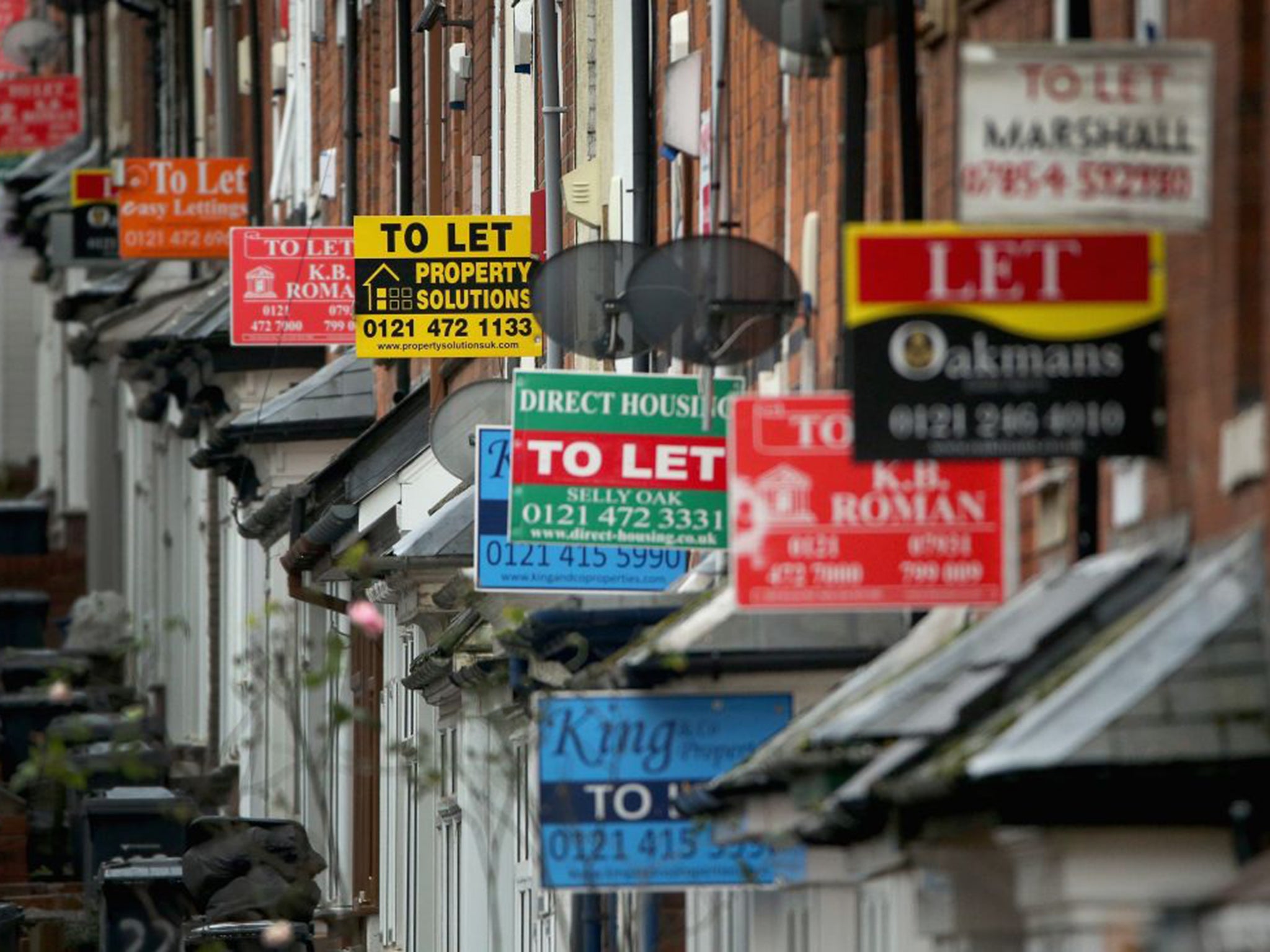Rollercoaster rental market points to landlord uncertainty
A significant drop in the number of properties coming to the rental market has sparked speculation over landlord fears and rising costs

Your support helps us to tell the story
From reproductive rights to climate change to Big Tech, The Independent is on the ground when the story is developing. Whether it's investigating the financials of Elon Musk's pro-Trump PAC or producing our latest documentary, 'The A Word', which shines a light on the American women fighting for reproductive rights, we know how important it is to parse out the facts from the messaging.
At such a critical moment in US history, we need reporters on the ground. Your donation allows us to keep sending journalists to speak to both sides of the story.
The Independent is trusted by Americans across the entire political spectrum. And unlike many other quality news outlets, we choose not to lock Americans out of our reporting and analysis with paywalls. We believe quality journalism should be available to everyone, paid for by those who can afford it.
Your support makes all the difference.A 15 per cent drop in new rental properties being listed across more than 90 UK towns and cities in August has prompted fears that a lack of supply will see rental costs rise as landlords continue to waver over investing in buy-to-let as the effect of stamp duty and other tax changes kick in.
While the UK rental market typically sees a slowdown in available property over the summer, this year a rollercoaster market has seen sharp rises in the number of homes available in July make way for drops of almost 40 per cent in some parts of the UK last month.
Almost nine out of 10 major towns and cities in the UK saw falls in the number of new buy-to-let properties being advertised in August, compared with the previous month, particularly in the north east, according to a study of homes available online this summer.
In most areas, there was a significant fall in new rental properties advertised. Hartlepool in the north east saw rental listings down 36.5 per cent, and a further 11 towns and cities experienced a shortage of new buy-to-lets being listed. Canterbury saw a -30.4 per cent, Wakefield -28.5 per cent, Loughborough -28.3 per cent, Colchester -26.5 per cent and Cardiff -25.9 per cent. Among the major English cities, London and Birmingham saw new rental property listings down by more than 16 per cent, while the drop in Manchester was more than 18 per cent.
Dan Gandesha, chief executive of crowdfunding platform Property Partner, which conductd the study, said: “Traditional landlords have had it hard of late. Alongside the stamp duty surcharge, banks have imposed tougher lending criteria, and cuts to mortgage interest tax relief will begin to take effect next year. Profits have been hit and this could force many landlords to sell up. If September fails to pick up and there’s a shortage of available rental properties, rents could be pushed up. Hopefully for tenants, this won’t be the case.
“Longer term, the pressing issue is to get Britain building more homes across all tenure types. Demand for rental homes has been increasing over the past decade, as more people move away from home ownership and become long-term renters. These tenants are quite rightly demanding a higher quality of service delivered by professional landlords.”
Join our commenting forum
Join thought-provoking conversations, follow other Independent readers and see their replies
Comments